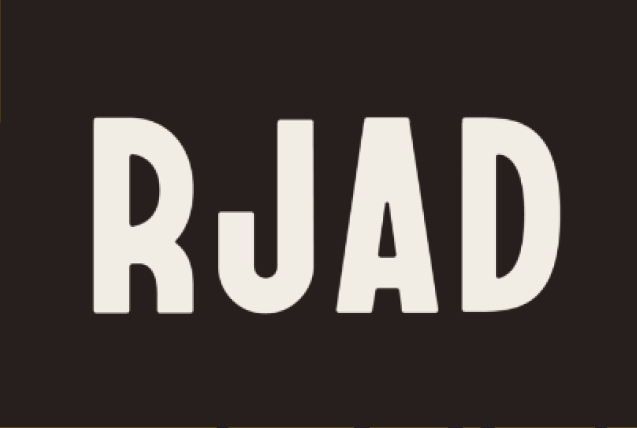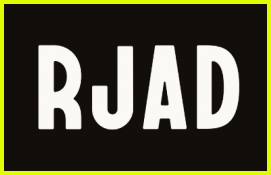Diverse Perspectives

Khalil Gibran Muhammad is the Ford Foundation Professor of History, Race and Public Policy at Harvard Kennedy School. He directs the Institutional Antiracism and Accountability Project and is the former Director of the Schomburg Center for Research in Black Culture, a division of the New York Public Library and the world’s leading library and archive of global black history. Before leading the Schomburg Center, Khalil was an associate professor at Indiana University.
Khalil’s scholarship examines the broad intersections of racism, economic inequality, criminal justice and democracy in U.S. History. He is co-editor of “Constructing the Carceral State,” a special issue of the Journal of American History, and contributor to a National Research Council study, The Growth of Incarceration in the United States: Exploring Causes and Consequences (2014), as well as the award-winning author of The Condemnation of Blackness: Race, Crime, and the Making of Modern Urban America. He is currently co-directing a National Academy of Sciences study on reducing racial inequalities in the criminal justice system.
His writing and scholarship have been featured in national print and broadcast media outlets, such as the New Yorker, Washington Post, The Nation, National Public Radio, PBS Newshour, Moyers and Company, MSNBC, and the New York Times, which includes his sugar essay for The 1619 Project. He has appeared in a number of feature-length documentaries, including the recently-released Amend: The Fight for America (2021), the Oscar-nominated 13th(2016) and Slavery by Another Name (2012). Khalil was an associate editor of The Journal of American History and an Andrew W. Mellon fellow at the Vera Institute of Justice. He is a member of the Society of American Historians and the American Antiquarian Society.
In 2017, Khalil received the Distinguished Service Medal from Columbia University’s Teachers College. And holds two honorary doctorates. He is on the boards of the Vera Institute of Justice, The Museum of Modern Art, Cure Violence Global, Oliver Scholars, The New York Historical Society, and The Nation magazine, as well as the advisory boards of Common Justice, The HistoryMakers and the Lapidus Center for the Study of Transatlantic Slavery.
Khalil is an award-winning teacher at Harvard and has received numerous honors for his commitment to public engagement, including BPI Chicago’s Champion of the Public Interest Award (2018), The Fortune Society’s Game Changer Award (2017), Ebony Power 100 (2013), The Root 100 of Black Influencers (2012-2014), and Crain’s New York Business magazine 40 under 40 (2011).
A native of Chicago’s South Side, Khalil graduated from the University of Pennsylvania with a B.A. in Economics in 1993, and then joined Deloitte as a staff accountant until entering graduate school. He earned his Ph.D. in U.S. History from Rutgers University.

Director of the Center for Ethics, Peace, and Social Justice at SUNY Cortland
Mechthild “Mecke” Nagel, Professor of Philosophy and Africana Studies, is Director of the Center for Ethics, Peace, and Social Justice at SUNY Cortland and Founding Editor of Wagadu: A Journal of Transnational Women’s and Gender Studies.
Dr. Nagel is the author of Masking the Abject: A Genealogy of Play (Lexington, 2002), Ludic Ubuntu Ethics: Decolonizing Justice (Routledge, 2023), and co-author of Reframing Diversity and Inclusive Leadership: Race, Gender and Institutional Change (SUNY, 2024). She also co-edited 7 anthologies including Contesting Carceral Logic (Routledge, 2022).
Dr. Nagel is interested in Indigenous justice studies, global feminisms, critical race theory. She is the founder of Sophia’s Garden, a partnership with area Cortland schools, where college students explore philosophy with children, from toddlers to teens.

Morgan C. Williams, Jr. is an Assistant Professor of Economics at Barnard College, Columbia University. Professor Williams’ current research agenda addresses the economic consequences of crime and incarceration policy in the United States—with a particular focus on racial inequality. This research entertains questions ranging from the economic determinants of racial disparities in homicide and policing to understanding the impact of criminal history disclosure requirements on racial differences in labor market and recidivism outcomes. Professor Williams’ research enjoys support from the Russell Sage Foundation and the Robert Wood Johnson Policies for Action Initiative.
Professor Williams is a previous recipient of the New York University Provost’s Postdoctoral Fellowship, National Bureau of Economic Research (NBER) Predoctoral Fellowship, the Massachusetts Institute of Technology (MIT) Predoctoral Fellowship, and a U.S. Fulbright Scholar Award. He received his Ph.D. in Economics from the City University of New York (CUNY) Graduate Center, MPH from the Columbia University Mailman School of Public Health, and is a proud graduate of Morehouse College.

Judge Nancy Gertner is a graduate of Barnard College and Yale Law School where she was an editor on The Yale Law Journal. She received her M.A. in Political Science at Yale University. She has been an instructor at Yale Law School, teaching sentencing and comparative sentencing institutions, since 1998.
Judge Gertner was appointed to the bench in 1994 by President Clinton. In 2008 she received the Thurgood Marshall Award from the American Bar Association, Section of Individual Rights and Responsibilities, only the second woman to receive it (Justice Ginsburg was the first). She became a Leadership Council Member of the International Center for Research on Women the same year. In 2010 she received the Morton A. Brody Distinguished Judicial Service Award. In 2011 she received the Massachusetts Bar Association’s Hennessey award for judicial excellence, and an honorary Doctor of Laws degree from Brandeis University. In 2012 she received the Arabella Babb Mansfield award from the National Association of Women Lawyers, and the Leila J. Robinson Award of the Women’s Bar Association of Massachusetts. She has been selected to receive the Margaret Brent Women Lawyers of Achievement from the American Bar Association Commission on the Status of Women in the Profession in August 2014.
Judge Gertner has been profiled on a number of occasions in the Boston Globe, the ABA Journal, Boston Magazine, and The Wall Street Journal. She has written and spoken widely on various legal issues and has appeared as a keynote speaker, panelist or lecturer concerning civil rights, civil liberties, employment, criminal justice and procedural issues, throughout the U.S., Europe and Asia. Her autobiography, In Defense of Women: Memoirs of an Unrepentant Advocate, was released on April 26, 2011. Her book, The Law of Juries, co-authored with attorney Judith Mizner, was published in 1997 and updated in 2010. She has published articles, and chapters on sentencing, discrimination, and forensic evidence, women’s rights, and the jury system.
In September of 2011, Judge Gertner retired from the federal bench and became part of the faculty of the Harvard Law School teaching a number of subjects including criminal law, criminal procedure, forensic science and sentencing, as well as continuing to teach and write about women’s issues around the world.

Professor Medina Camiscoli writes at the intersection of constitutional law, education law, and youth social movements. She employs participatory law scholarship and movement law to include, elevate, and credit mobilized youth who reimagine law and prefigure radical democracies. Through this work, she intends to extend the legacy of Rutgers Law School— known as the “People’s Electric Law School” — to marginalized and mobilized youth.
Previously, Professor Medina Camiscoli taught as an Education Studies Fellow at the Yale Center or the Study of Race, Indigeneity, and Transnational Migration and practiced law as a Justice Catalyst Legal Fellow at Public Counsel. Before law school, she worked as a public school teacher and youth organizer in the South Bronx where she founded IntegrateNYC— a youth-led organization that develops young leaders who repair the harms of segregation and build authentic integration and equity. Upon graduating from law school, she co-founded the Peer Defense Project—an intergenerational movement lawyering project that develops legal education, networks and technology to empower youth to fight injustice and transform the law. She identifies as a proud first generation, LGBTQAI+ legal scholar–practitioner of the Puerto Rican diaspora, born and raised in New Jersey.
Professor Medina Camiscoli holds a B.A. from Columbia University, a J.D. from Yale Law School, and an M.A. from Hunter School of Education.

Vincent Schiraldi has been Secretary of the Maryland Department of Juvenile Services. He is a national leader in criminal/juvenile justice and mass incarceration reform, a field he has worked in for more than four decades. He previously served as Commissioner of New York City’s Department of Correction, and before that Columbia University, where he served as Senior Research Scientist at the Columbia School of Social Work and co-Director of the Columbia Justice Lab, working to reduce the footprint and negative impact of community corrections, eliminate youth prisons, and create a developmentally appropriate response to offending by young adults. Mr. Schiraldi went to Columbia from the Harvard Kennedy School Program in Criminal Justice where he was a Senior Researcher.
Mr. Schiraldi also has extensive government experience in criminal and juvenile justice. While Commissioner of New York City’s Department of Correction, he attempted to close Riker’s Island and end the practice of solitary confinement. He also served as director of juvenile corrections in Washington DC, as Commissioner of the New York City Department of Probation, and as Senior Policy Adviser to the NYC Mayor’s Office of Criminal Justice.
Mr. Schiraldi also pioneered efforts at community-based alternatives to incarceration in NYC and Washington DC as founder and executive director of the Center on Juvenile and Criminal Justice and Justice Policy Institute, respectively. Schiraldi has lectured at the Columbia University School of Social Work, Harvard Law School, NYU School of Social Work, San Francisco University, and the Georgetown University Center for Juvenile Justice Reform.
Mr. Schiraldi received a Master’s in Social Work from New York University, and a Bachelor of Arts from Binghamton University.

If you’re interested in contributing your course to the project, please visit the “Course Material List” page or contact info@squareonejustice.org.

